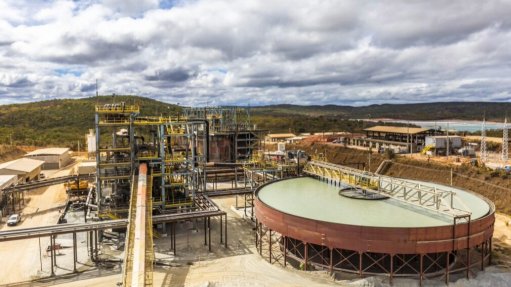Skills refocus required for green hydrogen development


SKILLS FOR THE FUTURE Forward thinking approaches to skills development need to be integrated to ensure the future hydrogen sector has the skills needed to support it
To address persistent mismatches between technical and vocational skills, and industry requirements, and meet future skills requirements for South Africa’s local green hydrogen economy, the industry needs to integrate “skills foresight approaches” throughout the skills development system, according to a policy recommendations report.
Research institute South African Institute of International Affairs’ (SAIIA’s) ‘Training in Uncertainty: Skills Foresight for a Just Green Hydrogen Transition’ report, released last month, describes skills foresight as a structured process for anticipating future skills needs to inform present-day decision-making.
In terms of the green hydrogen economy, skills foresight relates to the need to adopt future-thinking strategies and engage with stakeholders to better prepare workforces and transform the post-school education and training system for the demands of such an economy.
There is a significant demand for high- and medium-skilled workers in the emerging green hydrogen industry, says SAIIA Futures Programme researcher and paper co-author Francois Pretorius.
However, South Africa currently relies heavily on low-level-skilled workers, which has led to a notable disparity between technical and vocational skills, and industry needs.
With qualification mismatches already apparent among workers with qualifications in engineering, manufacturing, construction, natural science, mathematics and statistics, employers have also now identified shortages in specific roles, such as hydrogen fuel transporters, he explains.
To develop the report’s policy recommendations, Pretorius and report co-author Deon Cloete employed a participatory futures approach that included conducting a strategic foresight-informed three-day workshop, two policy dialogues, and several interviews with government officials and experts leading to the researchers’ identifying four priority areas.
These are strengthening skills anticipation systems, enhancing technical and vocational education and training (TVET) sector responsiveness, developing transversal skills and fostering a renewed education-related social compact.
Report Recommendations
The report proposes four policy recommendations which, if implemented, will play a pivotal role in bridging the gap between industry demands and the current skills landscape.
The recommendations include integrating skills foresight into skills planning, providing skills foresight and anticipation training for decision-makers throughout the TVET ecosystem, using strategic foresight to enhance credentialing systems and thereby developing a “transversal skills commons” related to skills needed for the green hydrogen economy as well as initiating participatory futures dialogues to build a new educational social compact.
The report states that the Department of Higher Education and Training (DHET) and the Human Resource Development Council (HRDC) should embed strategic foresight into green skills planning, forming a dedicated foresight team within the DHET, funded by the National Skills Fund. The Presidential Climate Commission should oversee the dissemination of findings through an online platform.
The DHET should also advance skills anticipation in TVET, which will assist in empowering lecturers and students. This should include offering futures literacy training and collaborative workshops on skills foresight for decision-makers.
Pretorius emphasises that with the DHET task team taking a lead, the department can enhance sectoral agility.
Elaborating on the role of the Presidency, the report calls for the establishment of a cross-sectoral TVET advisory board for green transversal skills in the HRDC.
The purpose of the board will be to manage whole-person formal and informal skills development, assess credentialing, address barriers and promote knowledge sharing, guided by the DHET foresight task team.
In addition, the report also suggests the Presidency launch participatory futures dialogues to co-create a vocational education social compact, facilitated by the Department of Science and Innovation’s online forums and sector education and training authority advocacy on TVET campuses, to inform DHET-led anticipatory exercises for policy enhancement and bridging TVET-university green skills gaps.
“By embedding strategic foresight into green skills planning, decision-makers can anticipate future skills needs and trends more effectively, thereby ensuring that training programmes align more closely with rapidly evolving industry requirements,” says Pretorius.
Recommendations’ Anticipated Impact
Empowering TVET institutions through skills anticipation initiatives and collaborative workshops will ultimately prepare graduates with the necessary skills for the burgeoning green hydrogen industry, explains Pretorius.
Further, establishing a cross-sectoral TVET advisory board to facilitate coordination and collaboration across sectors, will ensure a holistic approach to skills development.
Moreover, participatory futures dialogues can encourage collaboration and knowledge sharing among stakeholders, leading to the co-creation of strategies that address skills gaps effectively, he enthuses.
“Together, these actions contribute to a more responsive and adaptive skills landscape, better equipped to meet the demands of the evolving green hydrogen industry,” asserts Pretorius.
However, he notes that a potential challenge that could occur during the implementation of these recommendations is eliciting buy-in from the main actors in the TVET and green hydrogen ecosystems.
To address this challenge, Pretorius suggests key stakeholders from both ecosystems be included in the iterative formation of policy recommendations mirroring what was done with this research.
This inclusive approach ensures that potential implementation partners have a voice from the outset, fostering collaboration and ownership of the implementation process.
Amid the rapidly evolving global hydrogen value chain, as well as the increasing emphasis on decarbonisation, there is a pressing need for proactive measures to address potential skills gaps, Pretorius stresses.
“These milestones, when achieved within a timely framework, will contribute to ensuring that the TVET sector is equipped to meet the evolving needs of the emerging green hydrogen economy,” he concludes.
Article Enquiry
Email Article
Save Article
Feedback
To advertise email advertising@creamermedia.co.za or click here
Press Office
Announcements
What's On
Subscribe to improve your user experience...
Option 1 (equivalent of R125 a month):
Receive a weekly copy of Creamer Media's Engineering News & Mining Weekly magazine
(print copy for those in South Africa and e-magazine for those outside of South Africa)
Receive daily email newsletters
Access to full search results
Access archive of magazine back copies
Access to Projects in Progress
Access to ONE Research Report of your choice in PDF format
Option 2 (equivalent of R375 a month):
All benefits from Option 1
PLUS
Access to Creamer Media's Research Channel Africa for ALL Research Reports, in PDF format, on various industrial and mining sectors
including Electricity; Water; Energy Transition; Hydrogen; Roads, Rail and Ports; Coal; Gold; Platinum; Battery Metals; etc.
Already a subscriber?
Forgotten your password?
Receive weekly copy of Creamer Media's Engineering News & Mining Weekly magazine (print copy for those in South Africa and e-magazine for those outside of South Africa)
➕
Recieve daily email newsletters
➕
Access to full search results
➕
Access archive of magazine back copies
➕
Access to Projects in Progress
➕
Access to ONE Research Report of your choice in PDF format
RESEARCH CHANNEL AFRICA
R4500 (equivalent of R375 a month)
SUBSCRIBEAll benefits from Option 1
➕
Access to Creamer Media's Research Channel Africa for ALL Research Reports on various industrial and mining sectors, in PDF format, including on:
Electricity
➕
Water
➕
Energy Transition
➕
Hydrogen
➕
Roads, Rail and Ports
➕
Coal
➕
Gold
➕
Platinum
➕
Battery Metals
➕
etc.
Receive all benefits from Option 1 or Option 2 delivered to numerous people at your company
➕
Multiple User names and Passwords for simultaneous log-ins
➕
Intranet integration access to all in your organisation



















